The post Blind Stealing and Blind Defense: Two Sides of Pre-flop Poker Strategy appeared first on Championnat-De-Poker.
]]>Playing from the blinds is one of the essential components of pre-flop poker strategy. Many poker players either dread playing from the blinds since they don’t know what to do or are unaware of the disadvantages of being a blind and losing a lot of money trying to play as one.
This poker guide will cover essential things you need to know when playing from the blinds and when trying to steal them.
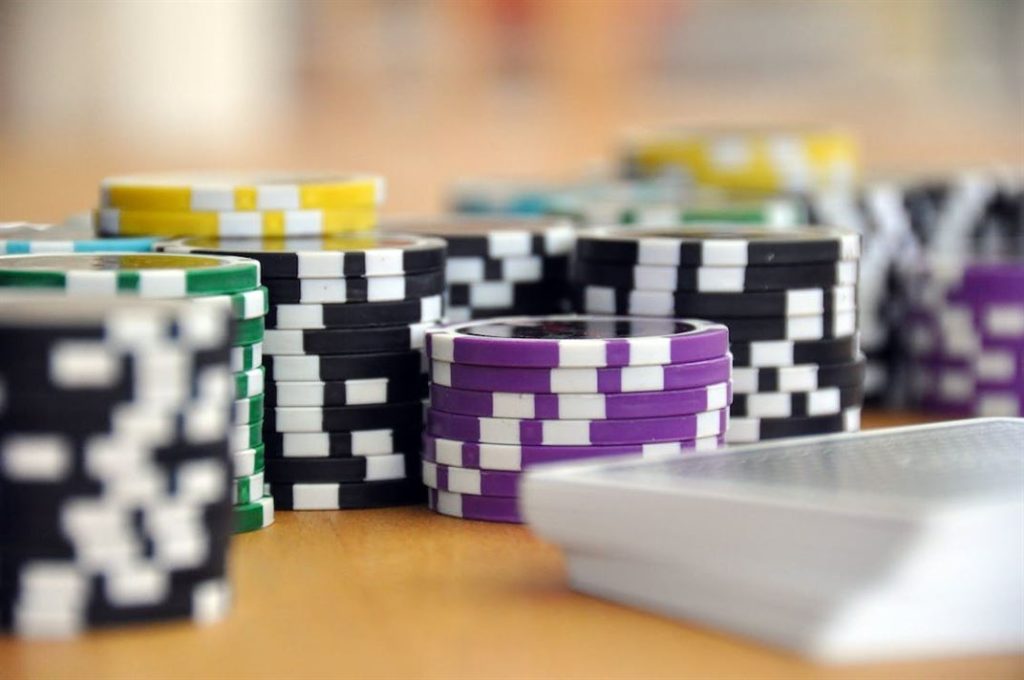
Prerequisites: Why the blinds are the worst positions in poker
If you’re wondering why pre-flop strategy revolves around the blinds so much, you must understand that the blinds are by far the worst positions in poker for two significant reasons.
The first is their informational disadvantage. The later you act in poker, the better. That’s because you get more information about the other players’ actions since they act before you. For example, if you notice that all players try limping into the pot pre-flop when you’re acting last, you can make a big raise to potentially win it on the spot. The blinds get the short end of the informational advantage stick, acting the last pre-flop but acting first on flop, turn, and river.
The second reason is the blind bets they must make. They are always a downside since you’re forced to put money in the pot without seeing your cards. If you get a terrible hand and have to fold, the blinds will have essentially become a tax. This is the primary source of frustration for newer players, as it’s hard to decide whether you should commit to try and salvage the blind bet or just give up and cut your losses.
Stealing the blinds, explained
So, knowing that the blinds are the worst positions in poker, players have developed a strategy known as “blind stealing.” It takes advantage of people’s reluctance to play from the blinds with a raise from late position pre-flop.
When done correctly, you’ll often get the blinds to fold with little resistance, allowing you to quickly pick up the pot. While the pot won’t be that big, frequent blind stealing is an easy way to build up your stack, especially in the late stages of tournaments where the blinds are larger.
Tips for stealing the blinds: Steal from tight players
Stealing the blinds requires your opponent to fold to your pre-flop bet, so you need to be careful about who you target. Tight players are the best players to steal from since there’s a high chance they’ll fold pre-flop, especially when out of position.
Your opponents’ aggression is also a factor affecting how they might respond to a steal attempt. Passive players will often just call, while aggressive players might try to punish you with a 3-bet,
You also need to consider how experienced your opponents are. Skilled players will understand the importance of defending their blinds and will know how to defend them properly. Blind stealing might not work well against better opponents unless you have a read on them.

Blind defense, explained
Defending your blinds is simply calling a raise you think your opponent is trying to steal your blinds with. Since stealing the blinds is a prevalent technique, you must learn how to defend and play from the blinds properly.
While we did talk about how the blinds are hard to play from, that doesn’t mean it’s impossible. In fact, the forced bet in the pot often gives you better odds to call, meaning that as long as your hand has some potential, you should try defending your blinds more often.
Tips for defending your blinds: Defend more often in tournaments
The value of stealing and defending your blinds increases significantly in tournaments and 6-max cash games. Tournaments have steadily increased over time, so while it may be fine to give up your blinds early on, you need to start fighting for them a lot more in the later stages.
6-max cash games mean the blinds rotate around the hand a lot faster, meaning they’re a lot more important. Being unable to play from the blinds means you’ll be bleeding money quickly.
Know when to give your blinds away
Finally, as much as it hurts to do so, sometimes you just have to let the blinds go. Think about it this way, what’s worse to lose: Your blinds or a pot you’ve invested money into on many different rounds? Don’t over call because the blinds are still the worst positions in poker; you don’t want to get into a terrible spot pre-flop because you felt an irrational need to defend your blinds.
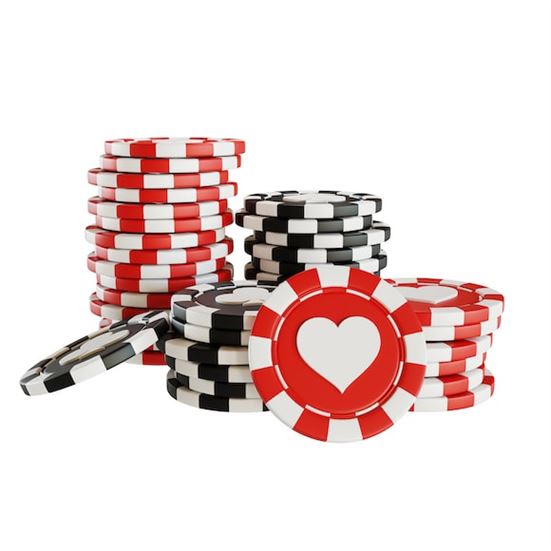
Master pre-flop play online!
Even with the techniques discussed in this article, there’s no way to master pre-flop strategy without practice. We recommend online poker if you’re trying to learn the game for a few reasons.
It has a wide variety of game types, from the classic Texas Holdem to formats like Omaha, where pre-flop play is less important than having a good post-flop strategy with draws. Online also has a faster pace, allowing you to get more games in and learn the game quicker.
The post Blind Stealing and Blind Defense: Two Sides of Pre-flop Poker Strategy appeared first on Championnat-De-Poker.
]]>The post Mastering Pocket Sevens in Poker Cash Games: A Comprehensive Guide appeared first on Championnat-De-Poker.
]]>This article will explore the strategies and considerations for playing pocket sevens in cash games. By understanding the nuances of this hand, you can make informed decisions and maximize your chances of profitability.

Knowing the Strengths and Weaknesses
As mid-level pocket pairs, pocket sevens offer strengths and weaknesses that players must be aware of to make informed decisions. One of the critical strengths of pocket sevens lies in their potential for improvement on the flop, turn, or river. With multiple opportunities to catch a set or make a straight or flush, pocket sevens hold reasonable value.
However, it is essential to recognize the weaknesses associated with this hand. The primary vulnerability of pocket sevens is their susceptibility to higher pocket pairs. If an opponent holds pocket eights or higher, the chances of outdrawing them significantly decrease. In such situations, caution and careful consideration of the board’s texture and opponent’s actions are essential.
Additionally, pocket sevens face the threat of overcards. Overcards are higher-ranked cards on the board that can diminish the relative strength of pocket sevens. When faced with overcards, evaluating the potential for your opponents to have connected with the board becomes imperative, as adjusting your strategy accordingly.
Another weakness of pocket sevens is their susceptibility to coordinated board textures. If the community cards present a coordinated and potentially dangerous board, such as with straight or flush draws, the relative strength of pocket sevens diminishes. In such scenarios, carefully analyzing the board and opponents’ actions can help you determine the best move.
Pre-Flop Considerations
Position
Your position at the table is paramount when deciding how to play pocket sevens. In an early position, it is generally advisable to play cautiously, as you have little information about your opponents’ holdings. In middle or late positions, you gain more control and can consider more aggressive actions.

Table Dynamics
Observing the table dynamics is crucial before making pre-flop decisions. Factors such as the playing style of your opponents, stack sizes, and previous actions will influence your strategy. Tight players and aggressive opponents may warrant a more conservative approach, while loose and passive players may present opportunities for aggression.
Stack Size
Consider your stack size for the blinds and other players. A deep stack allows for more flexibility, whereas a short stack may require a more aggressive approach to maximize your chances of accumulating chips.
Post-Flop Strategies
Assessing the Board
After the flop, carefully evaluate the board’s texture. Analyze the presence of potential draws, overcards, or dangerous coordinated cards. If the board is favorable, with low or unconnected cards, your pocket sevens gain relative strength.
Opponent Analysis
Pay close attention to your opponent’s actions and betting patterns. Consider using your pocket sevens to apply pressure and extract value if they display weakness or uncertainty.
Conversely, if faced with significant aggression or signs of strength, exercise caution and be prepared to fold if necessary.
Bet Sizing
Effective bet sizing is essential for maximizing value and minimizing losses. Consider making continuation bets to represent strength and protect your hand against potential draws when holding pocket sevens. However, avoid overbetting the pot, which may isolate you against stronger poker hands.
Calculating Pot Odds
Understanding pot odds is critical in decision-making. If the pot odds are favorable, you can justify calling or raising, depending on the circumstances. However, folding is prudent if the pot odds are unfavorable and the likelihood of improving your hand is low.
Adapting to Changing Dynamics
Table Image
Your table image and other players’ perception of your playing style is valuable. Maintain a balanced and unpredictable approach to keep opponents guessing. It allows you to exploit their tendencies and extract more value when holding pocket sevens.
Adjusting to Opponents
Adjust your strategy based on your opponents’ tendencies as the game progresses. Against loose and aggressive players, tighten up and play more selectively. Against tight and passive players, capitalize on their reluctance to play big pots by becoming more aggressive.
Bankroll Management
Bankroll management is not just a general consideration when you play poker; it is especially vital when playing pocket sevens in cash games. Understanding the importance of proper bankroll management can help you navigate the ups and downs of your poker game and maintain longevity in your journey.
Regardless of your skill level, variance is an inherent aspect of poker. Pocket sevens, being mid-level pocket pairs, are not immune to the fluctuations and swings that come with the game. It is crucial to approach each hand and session with a long-term perspective rather than focusing solely on short-term results.
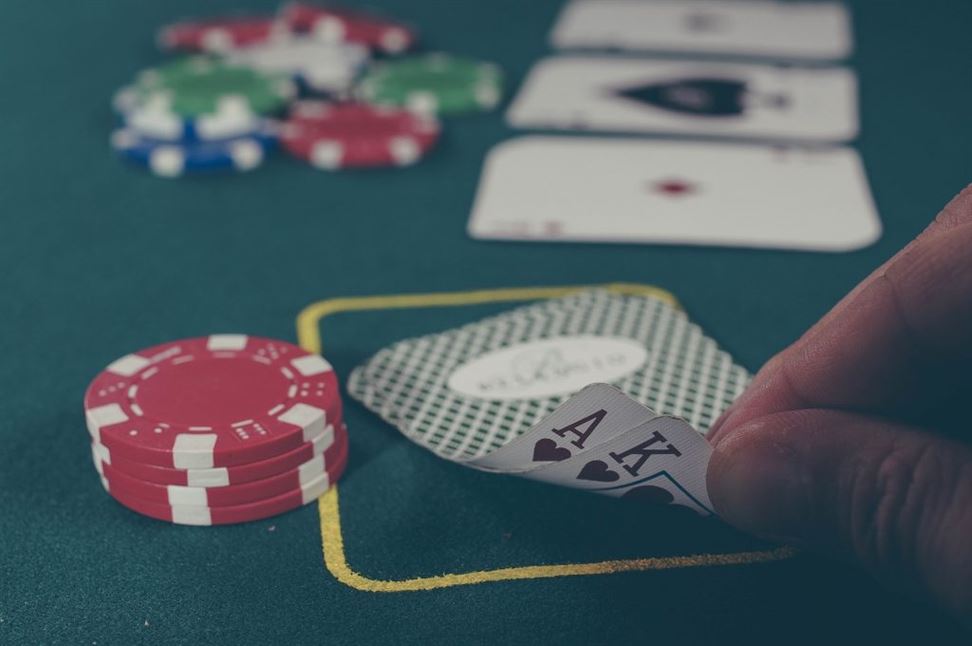
One of the critical aspects of bankroll management when playing pocket sevens is to avoid risking a significant portion of your bankroll on a single hand or session. While pocket sevens can present opportunities for potential improvement and value, poker has no guarantees. Placing too much of your bankroll at risk in a single hand can lead to severe losses and jeopardize your ability to continue playing.
By adopting a conservative approach to bankroll management, you can ensure you have the necessary funds to withstand downswings. It means carefully managing your stakes, considering your bankroll size and the potential risks.
It is generally advisable to play at stakes where the maximum buy-in is a reasonable percentage of your overall bankroll. This conservative approach acts as a safety net, mitigating the impact of variance and providing the financial stability required to weather rough patches in your game.
Conclusion
Mastering pocket sevens in cash games require skill, strategy, and adaptability to the poker tips that you have learned. By understanding their strengths and weaknesses, making informed pre-flop decisions, and employing effective post-flop strategy, you can navigate the complexities of this hand. Remember, practice and experience are vital to refining your play and becoming a formidable opponent at the poker table.
The post Mastering Pocket Sevens in Poker Cash Games: A Comprehensive Guide appeared first on Championnat-De-Poker.
]]>The post Questions to Ask Yourself Before Accepting or Applying Poker Advice appeared first on Championnat-De-Poker.
]]>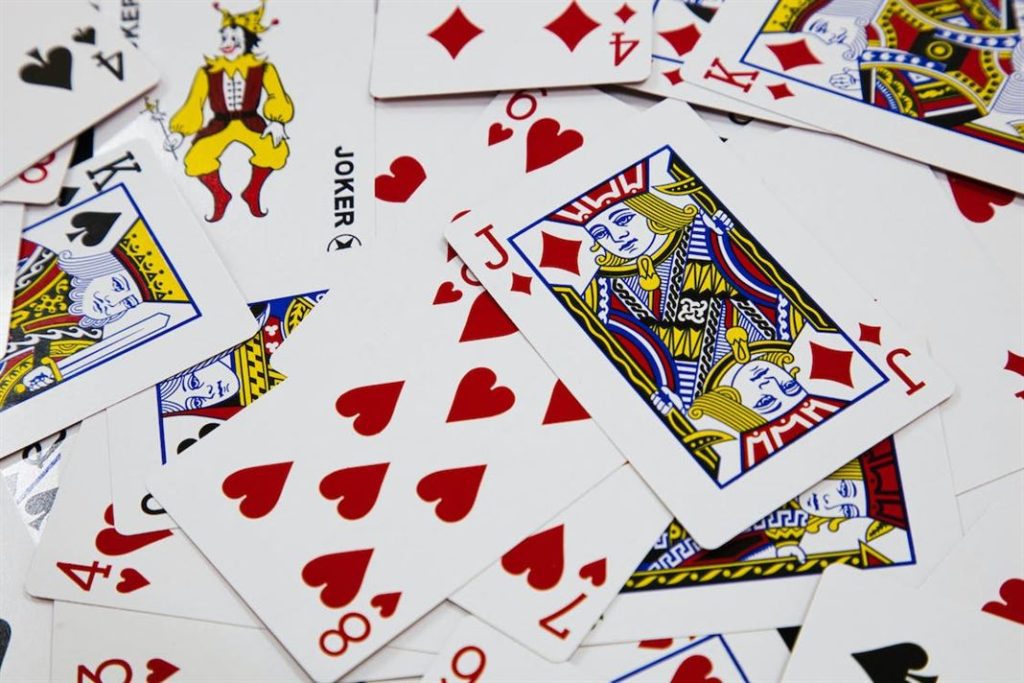
“Do I Understand the Jargon Used?”
Poker is full of jargon. It can be intimidating for new players to understand the terminology used by experienced players (and even some less experienced but still knowledgeable players). Before taking and applying poker advice, ensure you fully understand what the advice suggests. Otherwise, it could lead to bad decisions or playing against opponents who better understand the game.
If you’re getting deeper into the poker metagame and start encountering terminologies you no longer understand, it’s time to research. Look up the specific terms and know what they mean and how they apply to poker.
“Is It Based on General Poker Concepts or Specific to a Certain Variant?”
Advice in poker can be quite different depending on the variant being discussed. Knowing which nugget of wisdom applies to which game helps players understand which advice applies to them.
For example, Texas Holdem and Omaha have different strategies that work best for each variant. What works in Texas Holdem doesn’t necessarily work in Omaha, and vice versa. Make sure the advice is relevant to the game you’re playing at any given time.
At the same time, there is also lots of advice that applies to all forms of poker. This advice can provide a great starting point for anyone looking to improve their overall poker game. They’re ready to build game knowledge before delving into more specific advice.
“Does It Consider My Level of Experience?”
Advice recommended for experienced players might not be appropriate for beginners, and vice versa. Thus, consider your experience level first when deciding to take or apply the advice at the poker table. Knowing your skill level and ability can help you determine whether or not the recommendation is a good fit for you.
Additionally, some poker players may find themselves stuck at a certain level of play. It can happen to even experienced poker players if they don’t have an effective strategy for advancing their game. In this case, seeking advice from someone who has been through a similar situation can be helpful. If you’re in this situation, such advice can help guide you in the right direction and give you the tools to improve your game.

“Is It Based on Theory or Practice?”
In poker, some players rely solely on theory, others make decisions based on experience and practice, and some count on a little bit of both. Both have their merits, but it’s essential to understand that theory and practice differ.
When taking poker advice, you should consider the game’s theoretical and practical aspects. Poker game theory is essential for understanding the fundamentals of poker and developing an effective strategy. At the same time, practice is necessary to help refine your skills and develop a deeper understanding of the game.
Ideally, the advice you take should be based on a combination of theory and practice. This way, you can cover both bases and enjoy more significant chances of success.
“Is It Relevant to My Bankroll Management Strategy?”
It’s important to understand that bankroll management is essential to poker. Without proper money management, you can easily find yourself in a tough spot financially. So before taking any poker advice, consider your bankroll and how you manage it first.
For example, some strategies may require more risk than others, leading to losing a lot of money if the approach isn’t tailored to your budget. Ensure the advice is adjusted for your bankroll management plan.
“What Context Is It Coming From?”
Different contexts require different strategies when it comes to poker. For example, a strategy that works well in a tournament setting may not work well in a cash game. So, understand first the context of the advice you’re receiving so that you can adjust your poker strategy accordingly.
Additionally, make sure you trust the source from which the advice comes. Don’t take advice from someone who’s only had limited successes in the game. Doing so could lead to bad decisions and losses in the long run.
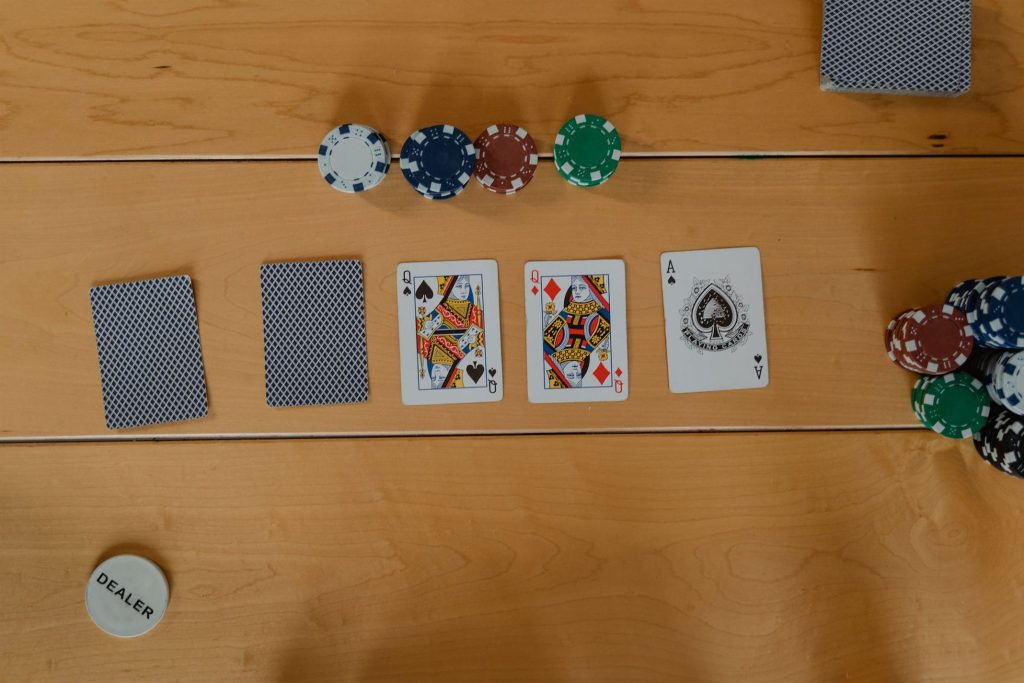
“How Old Is This Advice?”
The poker world is constantly changing. Tactics and strategies that used to be effective may no longer work due to shifts in the game’s meta and technology. As such, it’s important to make sure you’re taking the most up-to-date advice on current trends and developments. So if the advice is over a few years old, consider looking for newer sources with up-to-date information.
“Does It Match Other Advice?”
Finally, make sure the advice you receive matches up with other advice. If multiple sources give conflicting information, you must first discover why that may be the case. Consider researching different sources and seeing what strategies and tactics they recommend to make an informed decision.
On the other hand, if various sources agree on the same advice, this is a good indication that it’s sound general advice. In this case, you can have more confidence in applying the advice to your game.
Don’t Take Our Word for It!
The biggest takeaway is to take advice with a grain of salt and use your judgment when deciding which ones work. Even if someone offers you good advice, it may be wrong for you or your unique situation. Make sure that you weigh all of the options before making a decision.
Considering whether or not the advice is relevant to your bankroll management strategy, the context it’s coming from, its age, and how it compares to other advice can help you make informed decisions when taking poker advice. Good luck!
The post Questions to Ask Yourself Before Accepting or Applying Poker Advice appeared first on Championnat-De-Poker.
]]>The post 5 Advanced Poker Tips to Help You Win More Pots appeared first on Championnat-De-Poker.
]]>This article will highlight five advanced tips to help you take your poker game to the next level.
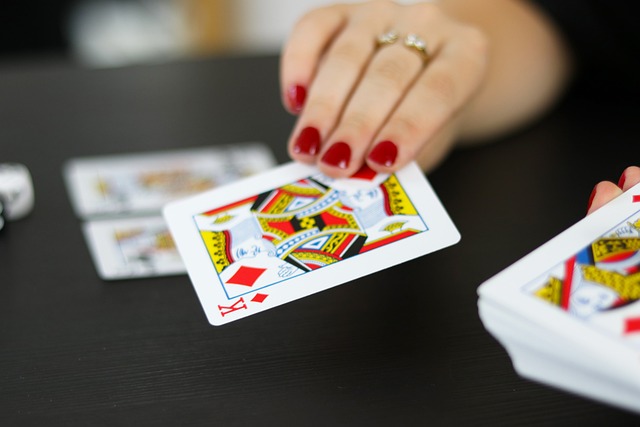
One of the key strategies to winning more pots is knowing when and how to bluff effectively. One technique that successful poker players use is using non-made hands with backdoor flush draws to bluff.
Experienced players know the importance of recognizing and utilizing their non-made hands. These can include plays such as bluffs, semi-bluffs, and various types of draws. While non-made poker hands may not have immediate value, their strategic potential can be significant.
This strategy can be especially effective in no-limit hold’em games because it allows you to represent a strong hand while hiding the fact that you have a weak one. By raising or betting aggressively with a non-made hand and a backdoor flush draw, you can make your opponents think twice about calling or raising. It will ultimately take the pot down without having to show your cards.
When it comes to poker strategy, a big part of winning is knowing when and how to use different tactics to your advantage. One such tactic is the check-raise, and if you’re looking to up your game, you might want to consider using it more frequently from the big blind.
You can pressure your opponents, potentially forcing them to fold and allowing you to scoop up more pots without relying on premium hands. Plus, if you can pull off a successful check-raise, you’ll also be able to build a bigger pot that you can later win if your hand improves on the turn or river.
It isn’t a strategy to use blindly in a poker tournament or any game, as it requires careful consideration of your opponent’s tendencies and the board’s texture.
Pocket Pairs
Having a pocket pair means you have two cards of the same rank in your hand, which increases your chances of hitting a set (three of a kind) on the flop, turn, or river. And in multiway pots, your opponents are likelier to have weaker hands, making it easier for your pocket pair to triumph.

There are some risks, including a possible flush or straight forming on the board, but with the right strategy, pocket pairs can be an intelligent way to build your poker bankroll in multiway pots.
Knowing when to play aggressively or slow your pocket pair can make all the difference. Stay focused, stay aware, and remain confident in your pocket pairs.
Suited Connectors
Suited connectors are an exciting way to play poker, especially in multiway pots. They have the potential to turn into valuable hands, making them money-makers. But how can we use them correctly?
First, we must understand that suited connectors require some context to play them to their full worth. We should only enter a pot with suited connectors when we are in a late position, facing less than four bets. They also work great in pots where other players are limping in or calling with weak hands.
The key is to be patient and wait for the right cards, such as over or suited cards. With practice and the right mindset, you can make the most of suited connectors and become a successful multiway pot player.
Poker is a game about making strategic moves and taking calculated risks. One such move is the check-raise with draws after calling a 3-bet.
It might seem intimidating initially, but it’s a technique that can help you win more pots and keep your opponents guessing. Waiting to move until after your opponents have put in more chips effectively increases the pot size and creates opportunities for bigger payouts.
Timing is key. It would help if you were confident that your draw is worth the investment and that your opponents aren’t likely to have a hand to beat you.
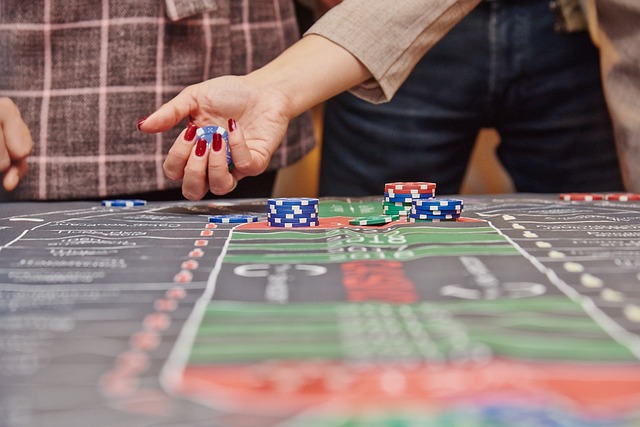
The nut advantage means that you hold the best possible hand at that moment with the cards on the table. It puts you in a commanding position over your opponents, who may have a weaker hand.
Recognizing when you have the nut advantage lets you make more informed decisions about how much to bet, raise or fold. Sometimes, it may be possible to bluff your opponents into thinking you have the nut advantage when you don’t. It will allow you to win the hand despite having a weaker hand than your opponents.
Having the nut advantage isn’t always enough to seal the deal. It is where over-betting comes in. Over-betting lets you put more pressure on your opponents and force them into difficult decisions. This strategy is particularly effective when you have the nut advantage, as your opponents will be less likely to call or raise without a strong hand.
Overbetting has drawbacks, so weighing the risks and rewards before making this move is essential. Considering over-betting when you have the nut advantage can be an innovative and effective way to win more pots and come out ahead when you play poker professionally.
Conclusion
Poker is a complex game that requires skill, strategy, and a lot of practice. But with the right techniques, multiway pots can be an effective way to win more hands. Whether pocket pairs, suited connectors, or over-betting when you have the nut advantage, plenty of techniques help you become a winning poker player.
The post 5 Advanced Poker Tips to Help You Win More Pots appeared first on Championnat-De-Poker.
]]>The post Mindset Upgrade Unlocked: Keys to a Stronger Mental Game in Poker appeared first on Championnat-De-Poker.
]]>It may seem simple at first glance, but mastering the mental game of poker requires proper knowledge. To help you do that, we’ve compiled the keys to help your mind stay strong in various poker-related matters.
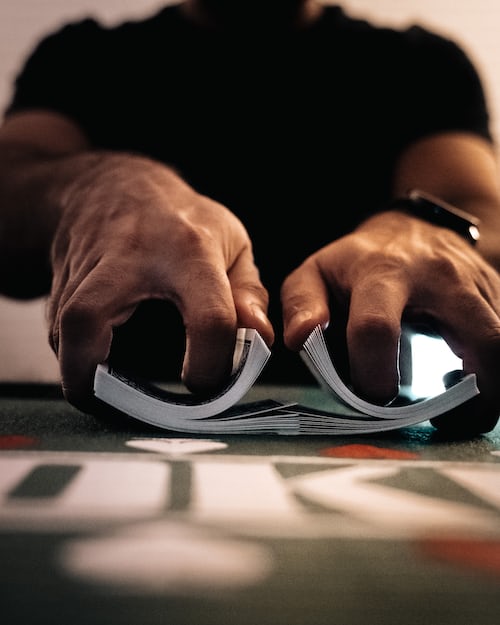
The Right Expectations
It can be very easy to get too caught up in the idea that you are going to win every hand or that you are going to make your opponent fold every time they face your raise, but this kind of thinking is not productive and will lead to disappointment. Instead, focus on playing your best and making decisions that align with each situation’s odds and expected values.
That applies to what happens in the game and your long-term poker journey. For example, expecting you will win big with each session can prevent you from making smart decisions and lead to costly mistakes. Instead, focus on improving your game and understanding the poker strategies employed by successful players; this will make it more likely to make good calls every step of the way.
Accepting Odds as Part of the Game
Call it odds, luck, or variance – no matter how you look at it, you must accept that some aspects of playing poker are outside your control. Making the best decisions can help mitigate or eliminate luck factors in some rare cases, but you will still be at the mercy of the cards. Realizing this and accepting it will help give you perspective when things don’t always turn out as planned.
Aside from the cards, another chance-based aspect of the game is the opponents you could match up with. You have no control over who you come up against, their strategies, and the style of play they adopt. However, rather than fear facing strong competition, use this as an opportunity to test your skills and improve.
It’s also important to understand that while your luck will eventually improve after a bad streak, there is no way to know when it will happen. That means you shouldn’t try to chase your losses when the odds aren’t in your favor. You’re better off trying again at another time instead of trying to force a win.

Setting The Right Goals
Having the right goals is also important for having a strong mental game in poker. Taking on too many goals at once can be overwhelming and lead to frustration, so it’s important to break them down into smaller, more manageable goals.
Additionally, focusing on the process instead of simply striving for results can help keep your motivation high and reduce stress. For example, you’re learning to read your opponent’s tells. Rather than be too excited about how this particular skill will benefit your game, you should find satisfaction in learning and understanding what each tell means. Eventually, this skill set will help you to make more informed decisions and reach your goals.
Aside from setting the right goals, you must also learn to remember them while playing. After all, it’s very possible to forget them in the heat of the moment. For example, if your goal is to build your bankroll, it can be difficult to remember if you suddenly feel like you must chase losses.
Positive Self-Talk
It can be easy to beat yourself up after losing a big pot or make excuses for your opponents being luckier than you. But instead of engaging in negative self-talk, focus on the positives and what you can learn from each situation. Celebrate small wins, stay confident, and remind yourself that it is all part of the game.
At the same time, you should remember that positivity doesn’t mean blind optimism. Acknowledge bad beats when they happen, stay humble, and be realistic about the situation. Doing so will help you control your emotions and make better decisions at the poker table.

Practicing Mindfulness
This particular type of meditation has many applications, including poker. And in the game, that means staying on the poker hands you’ve chosen to play without letting your thoughts wander. Doing so will help you make better decisions and reduce stress during the game, improving your performance. Some simple techniques can help you practice mindfulness while playing, such as taking deep breaths or counting your chips.
Mindfulness also means focusing on the present rather than being too concerned with future possibilities. It may seem counterintuitive because predicting what the opponent will do next is an unavoidable part of poker, but mindfulness isn’t about not trying to guess what could happen.
Instead, it’s about avoiding distractions caused by being too fixated on the future. After all, figuring out everything that could go wrong or being too sure about a particular outcome could take away your attention from what’s happening in the present. It can also cloud your judgment. Rather than fall into either trap, you’re better off making a few intelligent guesses and playing in the now.
Have the Right Poker State of Mind
By setting the right goals, engaging in positive self-talk, practicing mindfulness, and learning to accept the randomness of each hand, you can improve your game and ultimately win more mental games. Doing those things, however, is easier said than done. Nevertheless, through constant practice and learning from your mistakes, you can develop these keys that will level up your mental game.
The post Mindset Upgrade Unlocked: Keys to a Stronger Mental Game in Poker appeared first on Championnat-De-Poker.
]]>The post Eyeing Your Career Path? Love Poker? You Might Just Succeed at Going Pro With These Tips! appeared first on Championnat-De-Poker.
]]>It’s a demanding occupation that requires skill and hard work, and only some succeed. So, before you consider leaving your job to pursue a poker career, it’s essential to understand the realities of the profession.
Make sure your bankroll can take it
If you want to make a living by playing poker, treat it as a business and ensure that you have sufficient funds, just like you would for any other company. Even playing at low stakes can accumulate expenses, making it essential to have monetary support. Losing successive games is a common occurrence, even for experienced individuals.
Therefore, having enough money is vital to avoid bankruptcy and the need to look for a job. You should have at least 25-30 buy-ins for your selected poker game and save 3-6 months’ living expenses. However, some players prefer to be extra careful and will continue working until they have saved enough to cover six months’ costs and have 40-50 buy-ins.
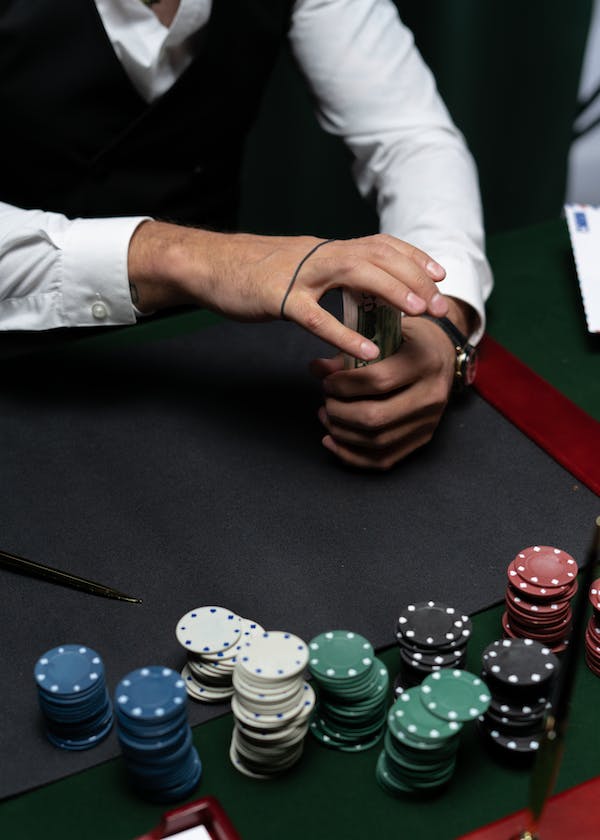
Be physically and mentally prepared
Professional poker players know that their behaviors outside the game influence their performance. Much like other athletes, physical health is crucial for their success. Poker players must commit time and energy to care for themselves to improve their well-being.
Be prepared to hustle weird hours
If you aspire to become a professional poker player, you’ll have to make lifestyle changes, as most pros need to follow the regular 9-5 routine. They prefer to play in the evenings and sometimes go till the wee hours of the morning since that’s when the games are most profitable.
The poker game with the most action happens late at night when recreational players are either intoxicated or not playing their best. The trick is to find such games and utilize them to your advantage.
Professional poker players often find balancing relationships and their careers challenging due to the random and often late-night hours. Some poker pros are single because they struggle to find a partner who can comfortably handle such a lifestyle.
Additionally, frequent travel, especially for those participating in tournaments, puts more pressure on relationships. Therefore, if you plan to become a professional poker player, you should be prepared to accept being single or find someone who can cope with the demands of your job.
Don’t let fear stop you
It’s important to remember that professional poker players are human too. They have personal problems, music preferences, and need to take bathroom breaks – all of which can cause them to make mistakes during the game.
While it’s necessary to fine-tune your strategies, it’s equally important to recognize that you and your opponents are prone to errors. Professional players make their living by playing against those who make more frequent or more extensive mistakes than they do.
When playing against a professional in poker, it’s essential to avoid making mistakes. However, you will likely make errors, so only dwell on them briefly. They happen to everyone. Unlike other games like soccer, one error in poker won’t necessarily make you lose the game right away. Your opponents will need to take advantage of your error. So stay relaxed and composed no matter what happens.

Inhale peace, exhale stress
Playing poker against skilled opponents can be difficult if you feel mentally drained from stress. You must remain calm and think clearly, even under pressure, to perform well in this situation. If it seems overwhelming, there are some tips to cope with stress, such as taking deep breaths, using the extra time given wisely, picturing opponents naked (or not), and even ordering a shot for an extra boost and win a poker game.
Be open to learning new things
Many highly skilled poker players in the top 10 to 15 years are no longer considered elite. Adapting to the ever-changing poker strategy is crucial to avoid losing the game. In 2003, when the poker boom arrived after Chris Moneymaker’s WSOP Main Event victory, millions started playing poker for the first time. However, most players could not perform well without sufficient knowledge, allowing professional players to take advantage of them.
The game of poker has evolved, and now younger players are dominating with a more analytical approach known as “game theory optimal.” As a result, many old-school pros have been edged out as they haven’t learned this modern strategy. It’s essential for both online and live poker players to constantly study and adapt to the ever-changing game to stay competitive.
Have World-Class Confidence
To excel in flush poker, being physically and mentally well-prepared before entering the poker room is crucial. However, some players need help to gain the confidence necessary to succeed.
While most players believe they are skilled, only a few are confident. When you have complete faith in your skill and knowledge, you can play your best regardless of the hand dealt or situation that arises.
While confidence can be helpful, more is needed to win poker games. One must put in a lot of time and effort studying their play and others to reach world-class status. This requires a lot of hands played and practice away from the tables.
Once you have put in this effort, you will likely see great results, and your confidence will increase accordingly. This reflects the time and energy you have invested in improving your skills.

But, Leave Your Ego
If you’re playing poker for a living, focus on building a large bankroll and steady income rather than trying to prove yourself against top pros. For instance, Daniel Negreanu can afford to lose $1.2 million to Doug Polk without being significantly impacted financially. Still, most pros can only participate in high-stakes matches against players like Polk if they risk their livelihood.
To maximize your earnings, focus on playing against less experienced players, particularly those with higher incomes. Remember that paying your bills should be the primary goal, not demonstrating your abilities.
Conclusion
As a professional poker player, it is essential to stay focused and motivated. Success isn’t always instantaneous; you must practice and perfect your strategies, but you can become a world-class player with dedication and consistency.
It’s also essential to develop good habits of bankroll management, discipline, and long-term planning and treat poker games, including Texas Hold em, like a business venture. If these tactics are implemented, your success can be measurable and consistent. Your poker career is just beginning – go out there and make it happen!
The post Eyeing Your Career Path? Love Poker? You Might Just Succeed at Going Pro With These Tips! appeared first on Championnat-De-Poker.
]]>The post Planning Your Las Vegas Live Poker Debut? Here are a Few Tips for a Great Experience! appeared first on Championnat-De-Poker.
]]>Poker etiquette includes more than basic rules like slow rolling, angle shooting, and tipping the dealer. Experienced players often criticize others for displaying “poor etiquette” at the table.
This article provides examples of unwritten poker rules within the community, which even the pros uphold to keep the game respectful. But be warned. This article doesn’t claim the moral high ground. It also does not establish dead-set rules or assert to be the final authority on poker etiquette.
Knowing the general and unwritten etiquette rules is essential for players to improve their gameplay and appear experienced. Check out these tips to enhance your social game today! And above all, have a fun, memorable poker experience!

Rules on Tipping Your Dealer
Tipping customs differ based on the country and industry. Tipping is necessary in some places to support workers’ livelihoods, while it could be seen as offensive in others. In poker, tipping is typically expected and crucial for dealers’ earnings. Similar to servers and bartenders, dealers heavily rely on tips, especially in countries like the United States, where service industry wages are frequently inadequate.
Although some players may be hesitant to tip their dealers, it’s crucial to acknowledge the integral role dealers play in poker games. Without tips, dealers may pursue other job opportunities to make a living.
Therefore, it’s generally accepted in the poker community to tip dealers generously, although there’s no set rule on the amount to tip. Typically, players should aim to list at least $1 for each pot they win and more for bigger banks.
Treat poker dealers respectfully, as they are not responsible for game outcomes. It’s essential not to take frustrations out on them, display good sportsmanship, and follow poker etiquette to keep the game enjoyable for everyone involved. In addition to tipping, these actions will help ensure a positive atmosphere at the poker table.
Don’t Waste Other People’s Time
It’s important to remember that playing online poker cards requires your full attention. Avoid being distracted by multitasking or allowing your phone to make noise. Remember that squirming and indecisiveness is unprofessional and could annoy other players.
Repeatedly taking a long time to decide is also not something you should do. Remember to stay engaged and focused on the game so you can catch your turn and hold up gameplay. Being distracted by your phone can also slow things down, so keep it aside and prioritize the game.

Respect Others
It’s essential to be polite and respectful towards others when playing poker to maintain a pleasant environment. Refrain from criticizing or giving unwanted advice to other players to improve everyone’s experience.
However, be cautious about revealing your skill level to opponents as it may negatively affect their mental state. Additionally, avoid ranting after losing, as this could signal to opponents that you may tilt and become vulnerable in the next few rounds.
Don’t Pick Fights
One of the most important rules to remember is respecting other players. If you have a serious disagreement, seek help from the floor man (if you’re playing in person) or email the support staff (if you’re playing poker online). Also, if you suspect another player of cheating or breaking the rules, ensure they did something wrong before contacting the authorities.
Be Patient
Waiting for your turn to bet, fold, or raise is essential. Some players fold too quickly because they are not satisfied with their hands. While some players with a good hand may raise before their turn, it is essential to remember that doing so can give away information to the players behind you.

Avoid Slow Rolling and Angle Shooting
If you have a good hand and feel confident about winning but want to prolong the game, think carefully before delaying the reveal of your cards. Though allowed in poker, it is not considered a morally good tactic, so avoiding slow-rolling is best. Most players deem it inappropriate or impolite to slow-roll an opponent.
While it may be okay to slow-roll a friend or someone who won’t get upset, revealing your cards during a showdown is generally better when you’re sure you have the best hand. Slow rolling involves deliberately stalling to make others think they’re winning, and it’s impolite and can create unnecessary tension at the poker table.
Meanwhile, angle shooting is when a player intentionally deceives their opponents in an unethical way. This can include talking to another player about their hand but not revealing your intentions or pretending to have a more substantial hand than you do. It can also involve intentionally making mistakes, like accidentally betting more than you intended. If you’re new to poker, you must know these tactics to avoid falling victim to them.
Final Thoughts
Despite Las Vegas’ reputation as Sin City, there are still etiquettes and rules to abide by if you want a great poker travel experience. Avoid getting boastful if you win, and don’t criticize your opponent’s performance if they lose. They already feel bad about losing. It’s good manners to stack your chips and tip the dealer discreetly. Make sure to understand and uphold poker etiquette in any poker setting.
When playing with a professional dealer, the rules should be strictly followed – from using a soft voice and speaking only when necessary to not touching chips or cards – as it will keep the game’s pace smooth for everyone involved.
As players become more experienced, setting aside their egos and always showing respect for all participants at the table will also be necessary for an enjoyable atmosphere, whether that’s by congratulating other players on their wins, understanding when it’s your turn to act, or simply addressing each other in civil tones.
Of course, if you need help with the etiquette of a particular casino game, the best thing is to consult with the dealer before joining in on any round. Acknowledging game etiquette can significantly increase everyone’s pleasure while playing and lead to more productive sessions.
The post Planning Your Las Vegas Live Poker Debut? Here are a Few Tips for a Great Experience! appeared first on Championnat-De-Poker.
]]>The post Are You Anxious About Playing Poker? Find Out if You Have Poker FOMO! appeared first on Championnat-De-Poker.
]]>Although the phrase “fear of missing out” might seem harmless and helpful, it causes anxiety and can originate from concerns like not being chosen for a team or feeling nervous about a poker opponent’s successes. It could also apply to the stress of securing a spot on a popular online poker website.
As a result, FOMO can lead to various psychological distresses, including tilt. Therefore, it is essential to explore the origins of the fear of missing out and determine when it becomes concerning for its impact.

Where Does FOMO Come From?
FOMO, which stands for Fear of Missing Out, originated in a 2004 op-ed piece published by The Harbus – the magazine of Harvard Business School. Since then, it has become popular and was even added to the Oxford Dictionary in 2013.
The enduring popularity of FOMO suggests that it will continue to be relevant in the future. Initially, FOMO was associated with the anxiety caused by constantly checking social media updates. People experiencing Fear of Missing Out (FOMO) must keep themselves informed and ensure they don’t miss out on essential updates regarding different topics.
This can be dangerous, as those with minority opinions may face severe consequences on social media platforms like Twitter or Facebook, which can further lead to real-life situations such as job loss, qualifications revocation, and even physical assault.
Over the years, FOMO has expanded its scope to cover various areas of human behavior, such as obsessive behavior on social media, financial trading, and even poker tilt from the anxiety and frustration of not being able to keep up with the latest trends and games.
The common thread linking these activities is their development and growth through internet technology. With internet access being more widespread on different devices, it’s no wonder many people have been impacted by FOMO-related discomforts regarding poker and poker hands.
When Do We Experience FOMO?
Do you ever feel like you’re missing out when relaxing at home in your pajamas or enjoying a good book or movie after a long day? That feeling might arise when you receive a text from one of your friends.
When your finger pushes the dreaded button, a wild house party appears on-screen with loud music and friends laughing uproariously. Suddenly, you realize that not going out tonight was an epic mistake; why did you think it would be enough to stay home? Fear of making the wrong decision can be daunting. The terrible decision settles in like a heavy blanket, leaving your best-case scenario far behind.

Discovering How FOMO Impacts Poker Games
It’s important to understand that FOMO is not a new phenomenon. It’s an instinct that humans have always had. Our survival as a species depends on our social connections, so being included in the group could pose a risk throughout history.
Experiencing these feelings can have physical effects, such as butterflies in the stomach and a racing heartbeat. FOMO, or the fear of missing out, can lead you to play hands that you should fold before seeing the flop.
This fear does not come from an external threat but can still affect your brain and decision-making process. Although some professional players may be able to profit in the long run with sure hands in early position, such as suited one- or two-gappers, most players cannot.
If you need help making decisions when you’re not in a favorable position, you may be widening your range of starting hands too much because of FOMO. Ask yourself if you’re losing money by hoping for lucky cards or overreacting to a random player winning big with a terrible starting hand.
Playing casino games can lead to FOMO, which doesn’t necessarily mean you have a gambling problem. However, it’s essential to be cautious and avoid a potential poker tilt. We tend to stay at table games longer than necessary to exploit profitable opportunities.

But it’s important to exercise caution and not let this behavior become unreasonable, as it may lead to problems later. When playing poker online and live, we must remind ourselves that our minds don’t automatically adjust to the game’s requirements.
Our minds need help grasping the game’s intricacies because our usual pattern recognition abilities, which help us recognize an opponent tell or classify a gambler as passive or daring, are not applicable here. Our brains are programmed to realize that even with a bad hand, we may still get lucky and win something on the flop.
The fear of missing out (FOMO) can be triggered when you feel like investing will make you miss out on something. This may lead you to bet more than you should on a bad hand. Unfortunately, some people don’t take responsibility for their FOMO decisions. Surprisingly, some feel relieved after taking the risk, regardless of whether it succeeds or fails.
Conclusion
Poker FOMO is an increasing issue in the poker community and can severely impact bankrolls and players’ mental health. Although feeling FOMO can be uncomfortable, it’s important to remember that missing out on big pots or tournaments won’t ruin your career as a poker player.
Learning how to play smarter, implementing sound bankroll management strategies, and having the discipline to stick to them will make all the difference. With this knowledge, you will be able to take advantage of opportunities presented while avoiding costly mistakes from inappropriate actions influenced by rush decisions made in the heat of the moment due to FOMO.
For those who strive for success in poker and improve their poker strategy, understanding your inner state and eliminating FOMO should be part of your path forward.
You can become a skilled and successful professional poker player by understanding what triggers poker-related FOMO and taking steps to counter its effects. So next time you feel the FOMO, remember: to step back, take a deep breath, and think about what you’re doing before you put your money at risk.
The post Are You Anxious About Playing Poker? Find Out if You Have Poker FOMO! appeared first on Championnat-De-Poker.
]]>The post Want to Pepper Interest in Your Home Games? Introducing Mixed Games Poker — The Spice You Need! appeared first on Championnat-De-Poker.
]]>Unlike the somewhat repetitive nature of poker, mixed games introduce a new world of exciting experiences that are enjoyable to explore. However, it can be overwhelming at first due to their unique formats. That’s why we have designed a guide to assist you in getting started with mixed games.
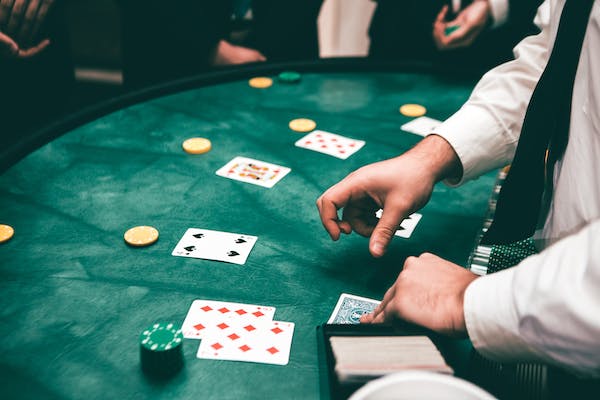
What Are Mixed Poker Games?
Mixed poker games involve multiple variations of poker combined into one game, sometimes up to ten. The games rotate from one type to the next, such as moving from Hold’ em to Omaha. The rotation speed differs based on the house rules and whether playing cash games or tournaments.
Two common ways to rotate games in a tournament are using levels/blinds or the number of hands played. With levels/blinds, a new game is played every 3-60 minutes when the blinds increase. With several hands, a new game is played after a predetermined amount of hands, such as every nine hands in a full-ring cash game.
Strategies to Consider
To avoid drawing the short stick during a good poker game, you must learn the basic strategies of each game you play. Even if you can only become an expert at some games, knowing these basics will prevent your opponents from taking advantage of gaps in your knowledge.
For example, in 2-7 Triple Draw, it’s advisable to avoid playing hands that don’t include a 2, and in high-low games, aiming for a low hand can be more beneficial since it can potentially win in two ways.
Knowing even the most basic strategies can give you a significant advantage over someone who knows nothing about the game in every game. Learning these winning strategies for any game you plan on playing is relatively easy.
Even for the most obscure matches, there are strategy books available. You can search for relevant articles or chapters within books if they are not available. Additionally, there are numerous instructional videos and strategy articles for most games, including poker and poker cards.
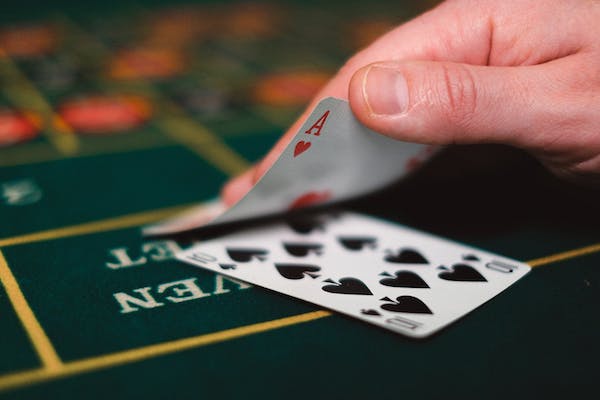
Finding a game that includes all the specific games you are looking for may be challenging. Suppose you discover a $10/$20 B.O.T.E. game that offers Omaha, triple draw, and stud hi/lo, but you have no prior knowledge of badugi. In this scenario, you might take a break when the game changes to badugi by pretending to go to the restroom.
Skipping one round in a mixed game is generally not recommended. If you join a mixed game, make sure you are willing to play all the games involved. However, from an ethical perspective, missing one orbit of a game is not a serious offense. Consider how frequently players step away from the table during a regular Hold’ em or Omaha cash game. If the game changes only when the dealer pushes or every two orbits in mixed games, it’s challenging to skip an entire game. It’s unfair to your opponents, and it’s hard to justify being away from the table for a long time.
Furthermore, it can be advantageous to try playing a game you are less familiar with or not as good at. While reading books or watching online training videos can help enhance your skills, the key to becoming proficient is through practice. The most effective way to improve is by gaining experience playing the game.
Instead of trying to become an expert in every poker variation, focus on a few games that you enjoy and are good at. Play those games more aggressively and take advantage of your opponents’ weaker skills in those games. Remember, it’s impossible to master every variation, so focus on what you do best.
If you need to be more skilled in certain games, it’s better to play cautiously and aim to lose money in cash games, at least not getting eliminated in tournaments. However, it would be best if you eventually worked on improving your skills in those weak games. Otherwise, you will always be a target whenever those games are played.

To improve your game, observe your opponents to identify their weaknesses. Please note which games they make the most mistakes playing or play fewer hands. This information can guide you to play more aggressively or steal their blinds and antes. Remember, every game is a chance to learn, and winning isn’t always necessary to benefit from a mixed poker game.
What are the recommended things to take notes on during gameplay? Take note of your opponents’ most substantial and weakest games and any opportunity you can use to your advantage in the future. Write down your best and worst games in that rotation. If you encounter hands you need clarification on, jot them down so you can discuss them with your peers or in a strategy forum later. Also, note the poker hands you want to review using tools such as a hand replayer and odds calculator.
Focus on taking high-quality notes to improve your performance and avoid losing money in mixed poker games. These notes can help you identify your weakest areas, which you can then work on strengthening. This tip applies to all types of poker games, not just mixed formats.
Final Thoughts
Mixed games are an enjoyable way to challenge your skill and luck in poker. Whether you’re an experienced pro or new to the game, it pays to practice these strategies and learn to adapt to each game type. Playing mixed games requires knowledge of different formats, but with some experience, you can soon become a master at this enjoyable variation.
Knowing when to play sure hands and when to take risks is critical. Ultimately, understanding the differences between the various types of card games available within the mixed game will significantly improve your odds of success and greatly improve your poker strategy. So be sure to put in the time, practice, and refine your skillset, and good luck!
The post Want to Pepper Interest in Your Home Games? Introducing Mixed Games Poker — The Spice You Need! appeared first on Championnat-De-Poker.
]]>The post Poker Hands Review: When Should You Call with Just Ace-High appeared first on Championnat-De-Poker.
]]>On the other hand, there are some situations when it is worth calling with an Ace-high hand in hopes of making something better. This article will review common scenarios for considering calling with this hand.

Against a Small Bet
When it comes to poker, sometimes it’s not always about having the best poker hands but understanding your opponent’s moves and making strategic decisions. If you face a small bet and suspect that your opponent doesn’t have a strong hand, it may be tempting to fold.
However, consider holding onto this hand and calling instead. It allows you to catch a card on the turn or river that could give you a pair and secure the win. Of course, it’s always a risk, but thinking critically and weighing the potential outcomes can make all the difference in a poker game.
Against a Weak Bluff
The art of deception plays a significant role in winning in a game like poker. Poker players must observe their opponents’ actions and behavior to identify their tells and tendencies.
Sometimes we may find ourselves in a predicament where we think our opponent is bluffing, but we’re not entirely sure. In such situations, calling with an Ace-high can be a smart move. Why? Calling may give you more information about your opponent’s hand and may even help you win the pot if your assumption is correct.
In addition, if you fold with a potentially strong hand, you may regret it later. If you doubt your opponent’s hand, don’t be afraid to call with this hand and trust your instincts.
In Multiway Pots
It’s always important to read the other players at the table. If you find yourself in hands with multiple players and suspect someone is trying to steal the pot with a weaker hand, don’t be too quick to fold. It may be worth sticking around with this hand.
This move is about more than just the strength of your hand, but rather the potential weakness of your opponent. By making this call, you’re showing that you’re not easily intimidated and willing to take chances when the potential payoff is worth it.
With some clever maneuvering, you might end up with poker winning hands. So don’t be afraid to take a chance and make that call.
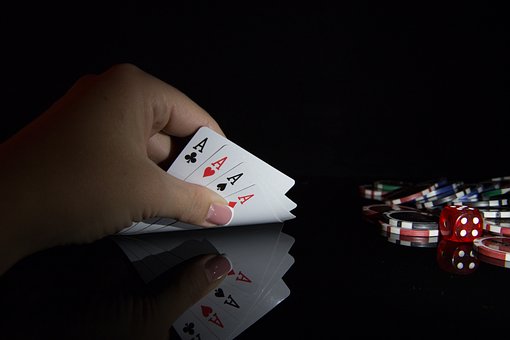
In Position
If you find yourself with this type of hand during a poker game, it’s not necessarily bad. It could end up being quite advantageous for you.
Before making rash decisions, it’s worth considering the possibility of calling a bet and paying attention to what your opponent does on the next street. This extra information can give you valuable insight into their hand and help you decide whether to fold or continue playing.
There’s no need to give up on your hands immediately; take your time and use it to your advantage. The key to success in poker is understanding your poker odds and using it to your advantage.
Against a Draw
If you suspect your opponent is trying to draw to a strong hand, but you’re not convinced they’ll make it, calling with an Ace-high can be the right move. While it may seem counterintuitive to play a hand that isn’t particularly strong, sometimes the element of surprise wins the game.
Calling with a seemingly weak hand throws your opponent off their game and gives you the upper hand. It’s essential to assess the situation carefully and consider all possible outcomes before making big bets.
But if you’re feeling confident, don’t be afraid to trust your instincts and take a calculated risk. Always be cautious but remain strategic while playing poker.
When You Have Outs
Sometimes, calling with just this hand might be a good strategy. One of those times is when you have outs. Outs are the cards that can improve your hand and give you a better chance of winning the pot.
If you have a few outs, calling could be worth it. Of course, this isn’t a strategy you should always use, but it’s something to remember when playing.
You could win big if you play your outs correctly and improve your hand.

Against an Indecisive Player
Many players hold off on calling with this type of hand, but certain situations can be beneficial. Another one of these situations is when you are up against an indecisive player.
If your opponent struggles to decide or seems unsure of their hand, calling with this hand can pressure them and potentially lead to them folding. This strategy should only be used in some situations, but it is essential to recognize when it can work to your advantage.
Staying attentive and aware of your opponent’s behavior lets you make a calculated decision that could benefit your game significantly.
When You Have Played Aggressively
Holding with uncertain hands can be daunting in any poker game. But there are certain scenarios where a call with this type of hand can be an intelligent play, and that’s when you’ve played aggressively.
By taking control of the pot with a series of bets and raises, you’ve put pressure on your opponent, forcing them to doubt the strength of their hand. And if they decide to move, their hand is more likely to be weaker than if they were in control.
Conclusion
While it can often be difficult to call with an Ace-high, there are situations in which it can be profitable. Knowing when to call using this hand can improve your poker game and allow you to win more pots. Remember these scenarios when playing; you should find that calling with the hands you have becomes more accessible and profitable.
The post Poker Hands Review: When Should You Call with Just Ace-High appeared first on Championnat-De-Poker.
]]>The post When to Fire Double Barreling in Poker Games appeared first on Championnat-De-Poker.
]]>That’s why you must understand when and how to execute a double barrel effectively. In this article, we’ll dive into the double barrel strategy, covering the best situations to use it. Get ready to elevate your game and keep your opponents guessing with the power of the double barrel.
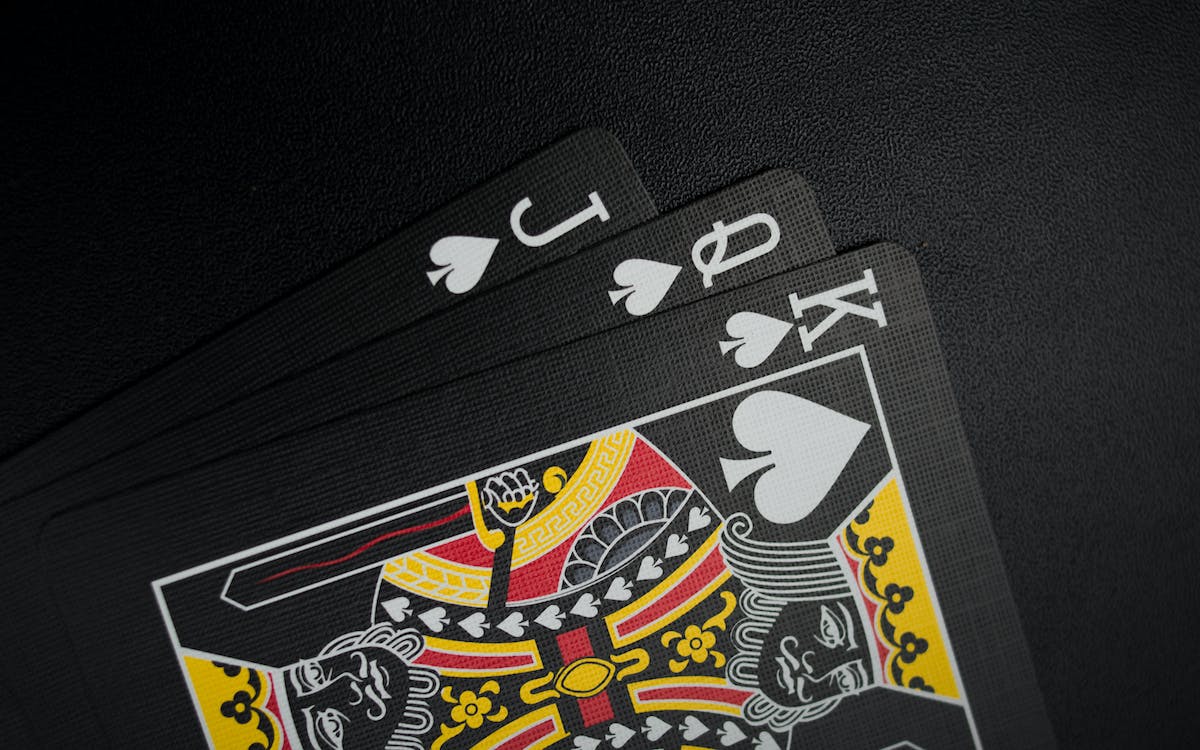
Basics of Double Barreling
It may seem enjoyable to continually bet against an opponent who frequently calls, but remember that trying to bluff players who rarely fold can be bad for your bankroll. It’s helpful to consider your opponent’s tendencies, such as if they like to continue with weaker hands or aim to reach showdowns often.
The more information you have about your opponent, the easier it is to decide if a second bet is wise. If you choose to go for a second bet, it should be a bluff or semi-bluff intended to win the pot immediately. To minimize the damage if your double barrel fails, it’s advisable to have a hand with some chance of winning on a lucky river card.
Typically, when making a continuation bet on the flop with a hand, it’s common to follow up with a second bet on the turn if you have at least one overcard. Having just one overcard is the minimum amount of equity required for a successful second bet.
Only bet on the turn if there’s a chance you could win the hand if called, and the more equity you have, the better. This is applicable in most bluffing scenarios. The turn card should improve your hand rather than just carrying on with a semi-bluff from the continuation bet. This is for maintaining balance in your strategy and avoiding predictability.
Look at the Board Texture
Paying attention to the board’s texture when playing poker is essential. You may start with general rules-of-thumb, such as bluffing with a draw or value betting with two-pair. Then, learning to consider how your range interacts with the board texture will become critical when deciding whether to double barrel or not.
For example,
The board shows (Ks 8h 8c) 3d. Suppose you have a rule for bluffing on the turn, including open-ended straight draws, gutshots, and flush draws. However, you can’t bluff on this particular board because there are no such draws.
Instead, you have a range of strong hands, including Kx, 8x, and AA, that you want to value bet, but you need to balance them with bluffing hands. You should aim for a 50/50 split between value and bluffs. However, achieving that on a board with no draws is challenging.
In such situations, you must expand your rule to include other hands with relatively good equity or blockers against the opponent’s calling range. For example, hands like QJ, JT, J9, T9, and T7s would be suitable on this board as they don’t have much equity but can block your opponent’s strongest hands.
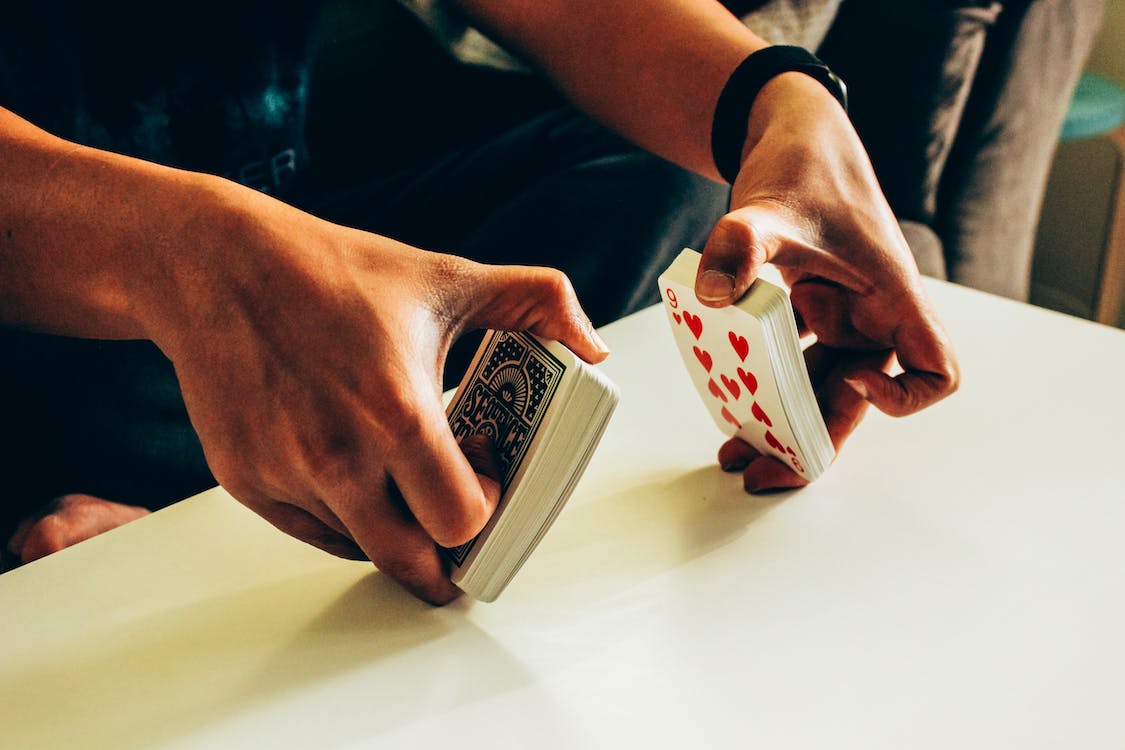
Must Have Bluff and Value Hands
Mix bluffs and value poker hands when employing double barrel tactics to vary your poker strategies. Aiming for a 50/50 balance between the two is recommended rather than relying solely on one or the other.
This approach can be particularly effective when using a pot-sized bet of around 75%, as it puts pressure on opponents holding weak hands. If using a larger bet, it may be possible to increase the frequency of double barrels, while smaller bets may require a greater emphasis on value hands to avoid being called too often.
Against Loose/ Passive Opponents
Using big bluffs against tight players at the poker table is not advisable, as they are more likely to call all the way through, and it can be costly. Instead, it’s better to target players who are loose pre-flop and play passively, as they have a wider range of hands and are more vulnerable to aggressive play.
By using second barrels against these players, you can punish them for calling too often and potentially win the hand. However, caution should be exercised against “calling stations,” who habitually call with weak hands. While bluffing them is possible, it requires careful timing, believability, and potentially three substantial bets. Overall, it’s usually more profitable to wait for a strong hand and let loose/passive players pay you off.
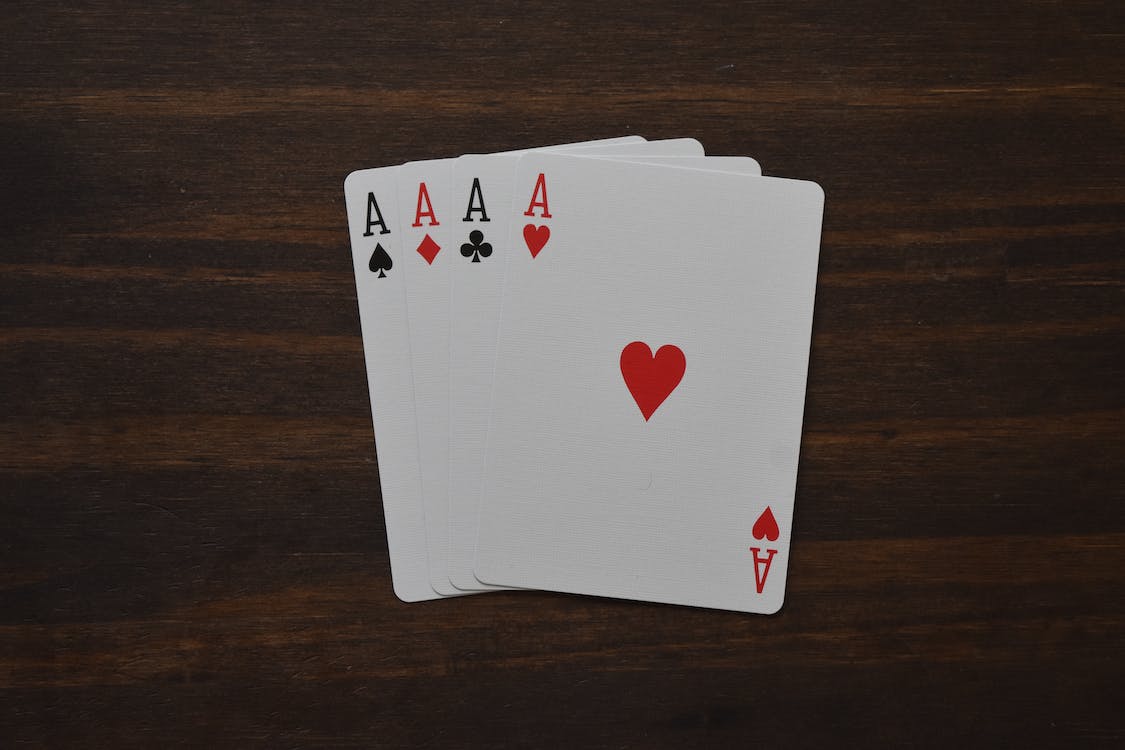
Turn is Bad for Opponent’s Range
The turn card must be unfavorable to your opponent’s range of hands to make a second barrel effective in poker. This makes them less confident about continuing to invest money in the pot.
One ideal scenario for a second barrel is when the turn card reveals overcards to the board, which demotes your opponent’s pair to a weaker one. Possible opportunities for a straight or flush can also be good candidates for a second barrel. While there is a chance that your opponent may be drawing to a flush, they will often hold a weak pair and may fold to well-timed aggression on a threatening board.
When Not to Double Barrel
There are certain circumstances in poker where using the double barrel strategy is not advisable. For example, if you have low-value cards and the flop reveals high-value cards like a jack, king, and ace, it’s best to fold as there’s a high chance an opponent has a strong pair.
Additionally, if someone has already raised during the pre-flop, it’s better to check and avoid attracting attention. Being too aggressive in this situation can make it harder to bluff or keep other players active in the round, especially when all eyes are on you.
Maintain spontaneity in your gameplay, so avoiding using this poker strategy too frequently in a short time is recommended, as opponents may pick up on your playing style.
Conclusion
Double barreling is a powerful poker strategy that can be used to put pressure on opponents and win pots. It’s essential to employ double barrel tactics at the right time, such as when the turn card is unfavorable for your opponent’s range of hands. Additionally, using a mix of bluffs and value hands in your double barrel approach is recommended, with an ideal balance of around 50/50.
Players should also be cautious when targeting tight or calling station opponents and wait for a strong hand when it makes more sense to let opponents pay you off. By considering these factors and using double barrel tactics wisely, players can increase their chances of success in poker games.
The post When to Fire Double Barreling in Poker Games appeared first on Championnat-De-Poker.
]]>The post When Lady Luck Strikes: Which Tournament Superstitions Do Poker Players Still Believe In? appeared first on Championnat-De-Poker.
]]>You must have many chips on your table when you want to play aggressively.
Players commonly believe that many chips are necessary to pressure opponents and that the enormous stack at the table is the “table captain.” However, this is not true. Every player gets dealt two cards, and each should play their hand to the best of their ability.
Poker differs because each hand presents a new challenge and has no predetermined game plan. You get two cards and have to make the most of them before moving on to the next hand.
Several things need to be considered while playing a hand, with stack size being one of the most crucial factors. Occasionally, playing aggressively is essential when you have a smaller stack and more conservatively with a giant pile.
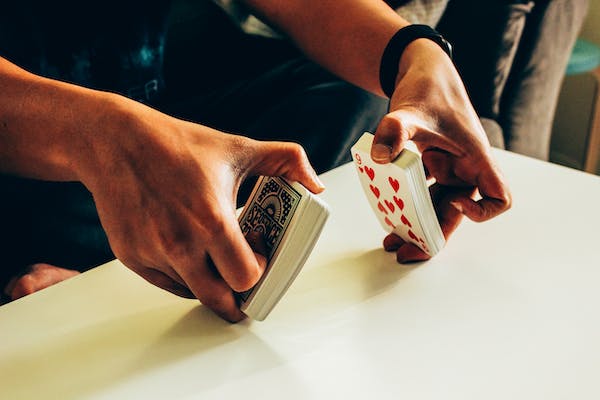
You Can’t Defend the Big Blind with Under 10 Blinds
Experienced players often criticize those who defend their short stacks from the big blind. However, if you float their open with a hand like T-9o and end up hitting a pair on the flop, going all-in, and doubling up, they may reluctantly give you the chips and sarcastically say, “Well played.” Many players believe you should avoid folding an open bet, especially when your hand has fewer than a certain number of big blinds.
Using poker hands training material from 1998 is not advisable because it contains outdated information that many people still rely on. Today, most players use a smaller open-raise size compared to 1998.
If you’re in the big blind and face a min-raise open, it is enough to have about 20% raw equity to continue. It is important to note that most hands have at least 30% equity against various opening ranges. Therefore, even though you may fold many flops, your playable hands’ equity is acceptable to justify defending them.
When you have a short stack, it’s easier to use equity when you need to be in a better position. This is because you have little wiggle room for your moves. For example, you have 6 big blinds, and the cutoff player min raises. You hold T 8
8 and defend your hand. In this situation, it’s doubtful that you’ll make a post-flop mistake because you’ll go all-in if you hit something.
and defend your hand. In this situation, it’s doubtful that you’ll make a post-flop mistake because you’ll go all-in if you hit something.
To clarify, if you do not have any solid cards or potential combinations after the first three community cards are revealed (known as the flop), it is best to check initially and then fold if your opponent bets. This will help you save some of your remaining chips.
However, if you have a larger stack of 30 big blinds or more, your opponent may be more likely to bet on subsequent rounds of the game, making it harder for you to stay in the game and make a winning hand. On the other hand, if you have fewer chips left in your stack, it can be easier to strategize and make the most of the cards you have after the flop.

When You Play, You Play to Win With Every Hand You Play
Some players use the phrase “Bingo!” after losing all their chips early in a poker tournament due to reckless play. They claim they had to play aggressively to win, but this strategy often results in early elimination. It’s important to remember that winning a tournament on the first day is impossible.
Your goal should be to play solid and strategic poker online or live and adjust according to your opponents. Playing hyper-aggressively doesn’t necessarily mean you have to play for the win. Playing to win is often unrealistic, but sometimes it’s also the right strategy to move forward.
When there is a chance of winning, it’s better to focus on winning rather than just playing. In some cases, like during the final two tables of the WSOP Main Event, it might be reasonable to take significant risks.
Sometimes, you may have to confront the chip leader to avoid being blinded. However, these high-stakes situations demand cautiousness, as there’s a thin line between taking calculated risks and making kamikaze moves.
It’s important to note that aiming for 2nd or 3rd place in tournaments with significant prize money is okay. Tournament players must accept and take advantage of pay-jumping opportunities like they cherish rare victories. Winning everything is impossible, and your success, in the long run, depends on how you handle the big picture.
“Every Poker Tournament should be played the same” is inaccurate because different tournament structures, such as satellite games, freezeouts, knockouts, and deep stacks, require different strategies.
It is essential to consider the conditions specific to each game, such as the number of entrants, buy-in fee, prize pool, payout places, and the opponents you are playing against. For example, depending on the payout places, your strategy may need to be adjusted during the bubble.

Conclusion
Poker tournaments can be a fun, safe, and entertaining way to play the game if you enter it with realistic expectations. Remember that the unpredictability of poker game tournaments makes them exciting, and the thrill of winning first place is worth the risks involved.
Preparing for a tournament is essential to knowing your bankroll, having a good strategy, and familiarizing yourself with the tournament rules. Do research before signing up for any tournament, and go in well-prepared. That way, you’ll be sure to enjoy playing your best game!
The post When Lady Luck Strikes: Which Tournament Superstitions Do Poker Players Still Believe In? appeared first on Championnat-De-Poker.
]]>